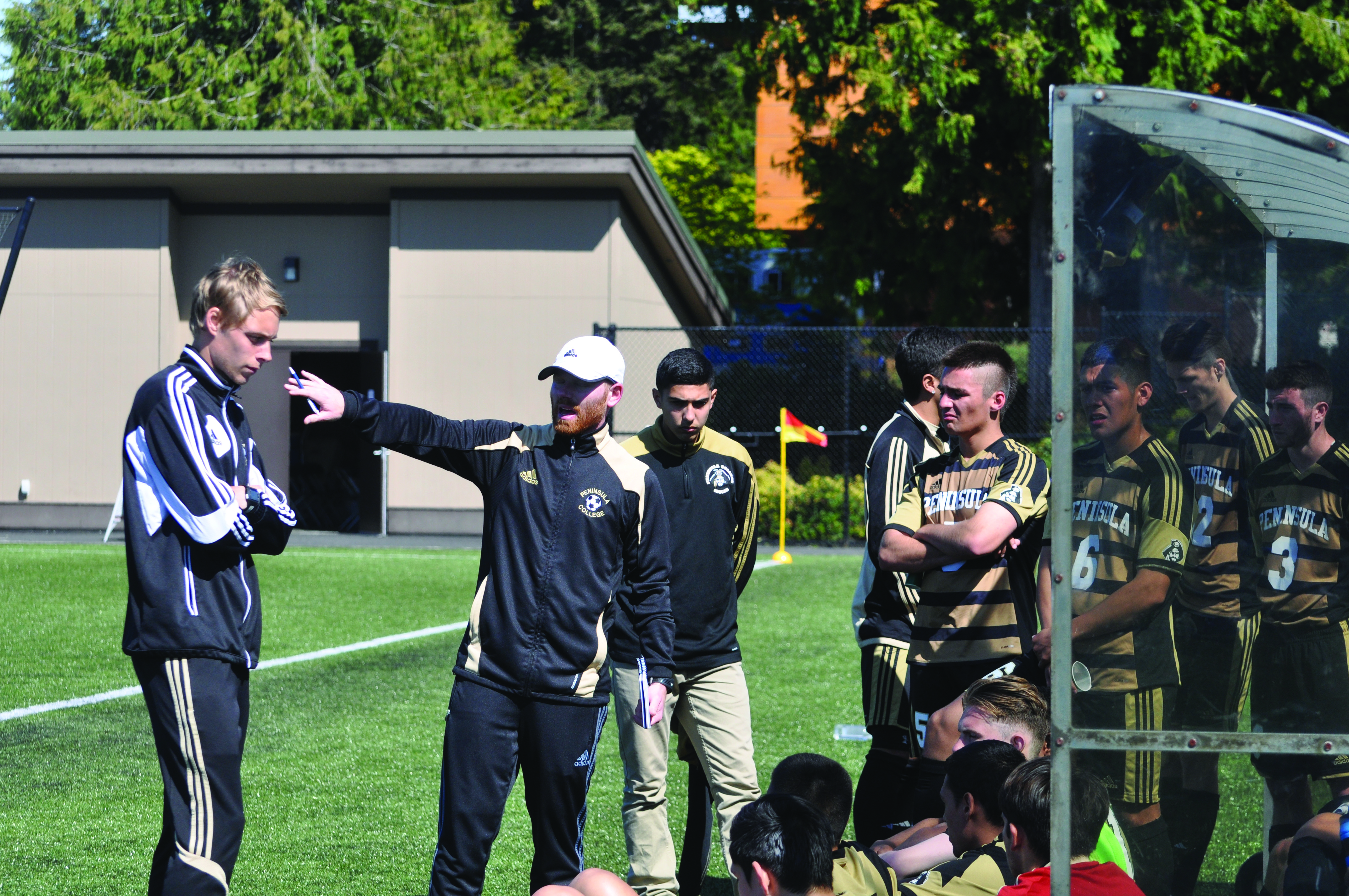
By Giovanni Roverso
Things have gotten harder for gamers looking for fun at Peninsula College’s Pirate Union Building computer lounge.
The computers, along with a publicly accessible Wi-Fi network called PCPUB, act as a safe haven of sorts, allowing students to temporarily forget about the pressures of academia and unwind through social media, video streaming and video-games—if you can get them to work that is.
People still play games now, but they have to stick to simpler ones that run on the web browser or they can attempt to figure out how to make them run off a flash drive or external hard drive which is difficult as most modern 3D games are complex and can require full installations and third party software to run.
Gamers had their own club last year. Matthew Weaver who is studying for a Bachelor’s in Web Design and Development at Full Sail University, coordinated the Gaming Club.
He said the group had little control over the computer lounge.
“Most of the maintenance was done through the school servers which we were not permitted access to,” Weaver said.
“At the time only a few of the computers would allow people to install programs on them, and even then once the computer was shut off the install was removed.”
He said that while there had been a proposal for the group to take care of the PUB PCs during day to day uses, most members just ended up taking control of them in order to play games.
He said he had to constantly remind everyone that the computers were there for the use of all students and not just gamers.
“Unfortunately as time went on it became harder and harder for each new set of leaders to keep a strong interest, especially since during the time of the meetings hardly anyone was at the college anymore.
“Our main issue was trying to get the word out since none of us were very good at creating posters/flyers to boost the club’s presence, or when trying to set up an activity for people to take part in.
“We were all quite frustrated with the fact that no matter how many hours we put in trying to get ourselves known we ended up having to continually rethink our strategy since we had such difficulty with getting feedback from our members and also their support in getting stuff going.”
Weaver said that while the group was “structurally sound,” there was not enough motivation in the rest of the group to fill the gap left by the “stronger members” once they had moved on.
Weaver talked about the importance of play for people in the psycho-sociological sense, although he did admit that too much play can make it a double-edged sword.
Where the Gaming Club failed, perhaps the new PC Tech Club may succeed. With Erik Waterkotte who heads the Cyber-security program at the college advising it, the group focuses on raising computer literacy among students.

Christian Tassie, club chairman, was positive about the group, and spoke of its many projects in an email.
He and the group have been conducting workshops focused on computer disassembly and reassembly, cleaning and maintenance.
“Our next workshop will most likely include members bringing in their own computer towers so that they can physically clean them out, evaluate their software and discuss how the system might be upgraded for a relatively low price,” Tassie said.
There were a few projects in the works, with the major one this year consisting of implementing a new infrastructure and refreshing the computer lounge environment, which, he said, hasn’t really changed much for the last 10 years.
“We will be creating a dynamic system that will efficiently meet the needs of both the Associated Student Council and Information Technology Department of Peninsula College,” he said.
While he wasn’t currently at liberty to comment on what the structure will look like or when it will be implemented, he said that he and group officials were working on preparation of the area for the new transition.
“The PUB lounge is of course a long term project and will be on our agenda each quarter until completion,” he said.
Tassie was cautious with making predictions about future quarters however because of a generally low attendance rate of clubs on campus.



